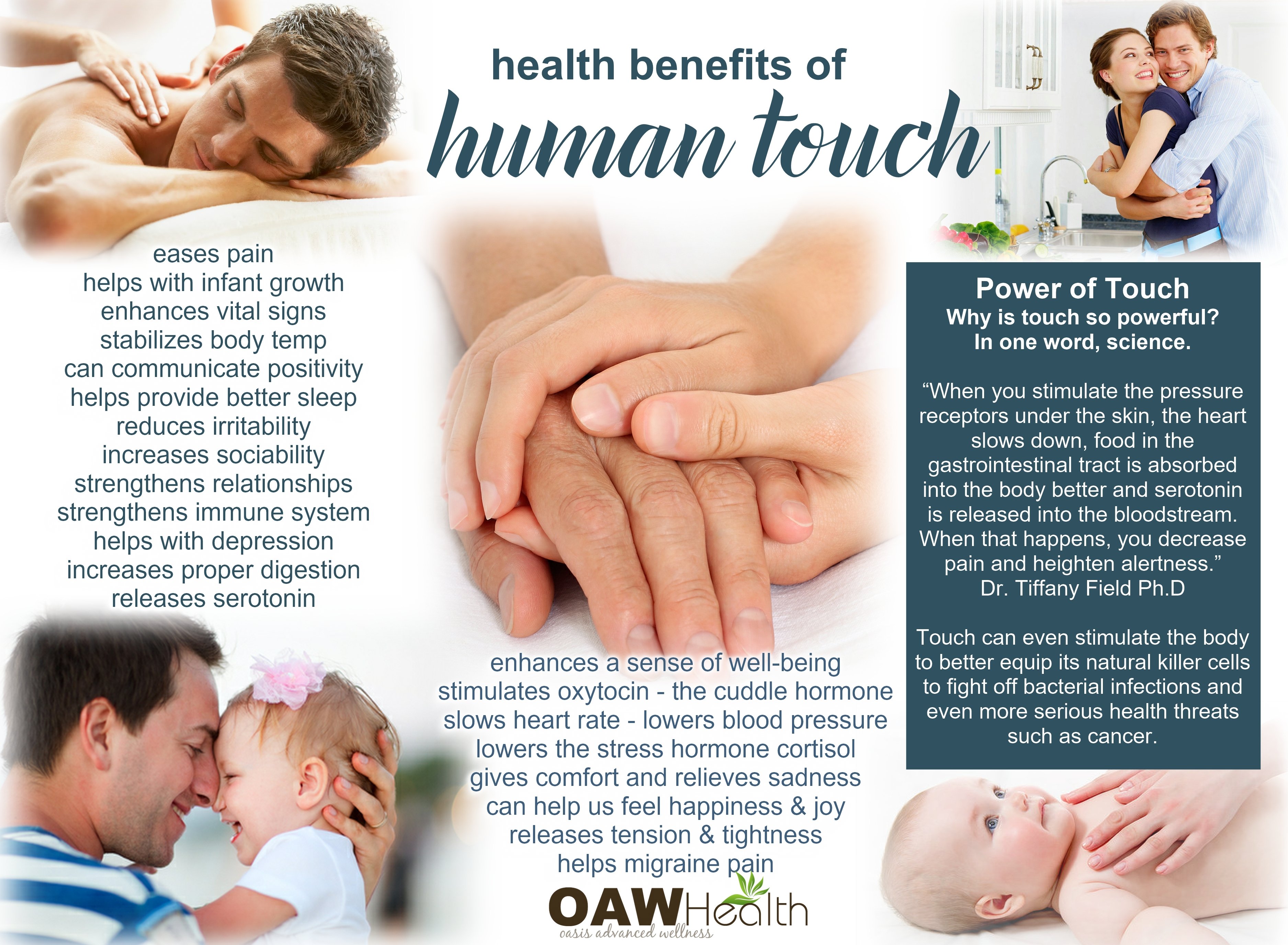
The skin is our body's largest organ.
We have hundreds of thousands of touch receptors all over our skin, and a touch can imply so much - it can be friendly, encouraging, violent, sexual, comforting and much more.
But touch is actually a form of social interaction without words as well!
And it's beneficial to our body and overall health.
Touch is the very first of our senses that develops within a baby, and a universal language that every human can understand without ever learning about it.

Touch and its effect on our health
Scientists have proven that physical touch, especially from a loved one, can really have an impact on our physical health and mental well-being.
Hugs for example trigger the release of a neurochemical called Oxytocin, which promotes trust and compassion.
Also, human touch reduces stress!
It has been shown that only holding the hand of a loved one for a few minutes can already decrease someone's stress level, blood pressure and heart rate.
Experiments with Babies have shown that their heart rate was much lower when they were being held skin-to-skin with their mother, compared to being wrapped up in their crib.
Plus, the babies cried 82% less when they were held by their mother!

Touch as a part of social bonding
Touch may seem like a very straightforward reaction in our body - the signal gets picked up by the receptors on our skin and then travels up to the brain.
But actually, the human brain can distinguish very well between the kind of touch, and it also makes a big difference from whom it comes.
Studies have shown that humans can even interpret small differentiations between the emotions linked to a touching sensation - for example, if this contact implies love or gratitude.
Researchers suggest that touch has always been a crucial part of human social interaction - for primates, it was especially the grooming of one another.
Experiments have shown that primates tend to share their food with members of their group that they groom, which leads to the conclusion that the grooming is an act of kindness and trust.
Studies that analyzed touch amongst sports teams have found out that it makes a team more successful!
Teams that had more physical contact in terms of high fives, celebratory hugs, fist bumps, chest bumps etc. helped each other out more and even performed a little better than other teams throughout the season.

Other connections between physical touch and health
Less violence:
Children that experienced much love and physical bonding with their parents are much less likely to become violent as adults.Healthy for our immune system:
Studies have shown that women who received frequent hugs from their partners had lower blood pressure and heart rates than control groups.
Hugs stimulate the thymus gland, which is needed to produce white blood cells and reduces the risk for diseases.Positive outcome for social interactions:
Studies have shown that friendly, encouraging touches were beneficial in many different social situations.
For example, when teachers encourangingly patted students on the back or the arm, the student was more confident to speak up in class.
When a salesperson touches the customer on the arm during his pitch, the customer tends to trust him more and when a waitress touched a guest's hand, the guest was more likely to give a largr tip.
Images: 1, 2, 3, 4, Sources: 1, 2, 3, 4, 5
- Instagram -

© Sirwinchester
